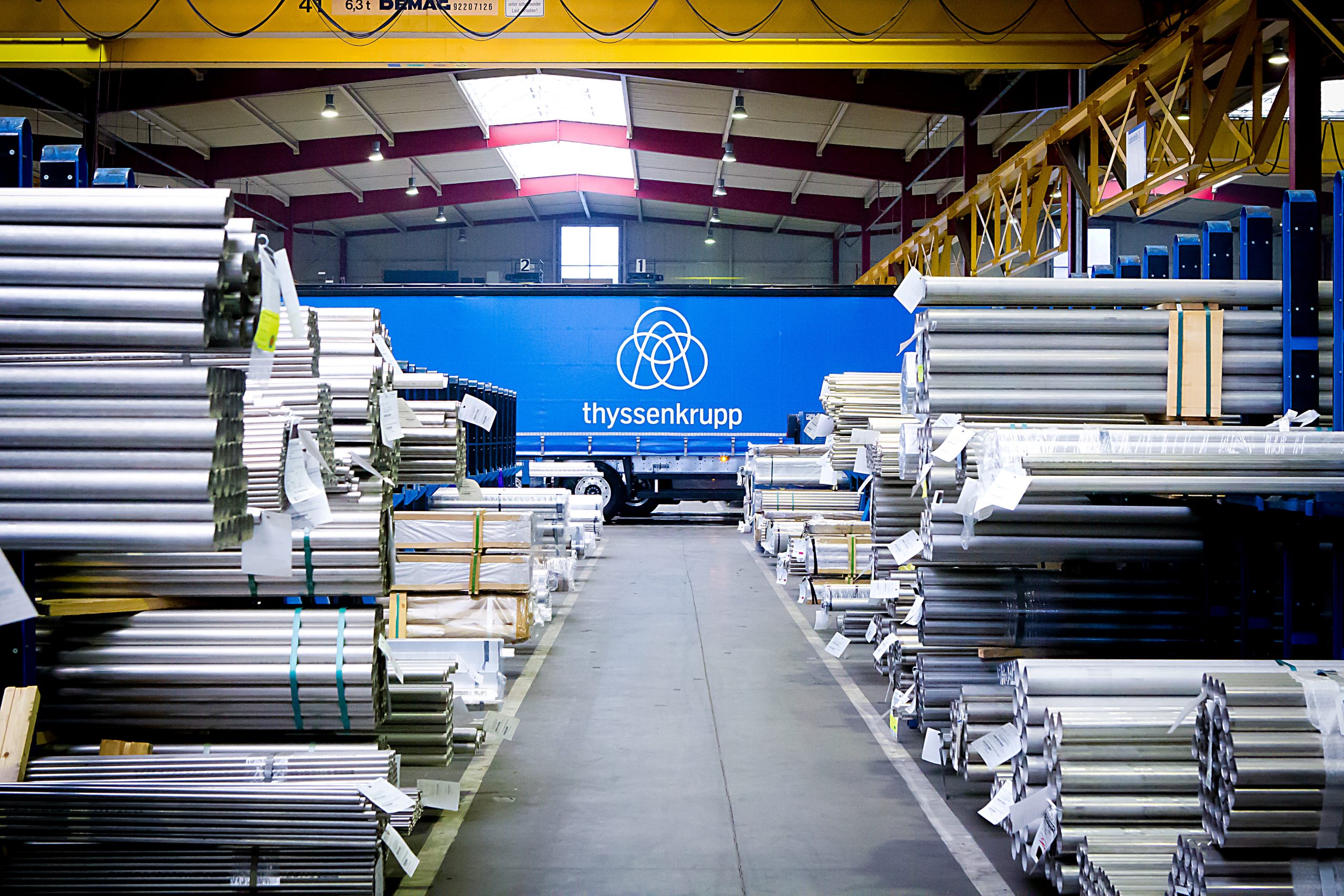German Thyssenkrupp’s steel unit has seen further improvements on robust demand and higher prices and will not be spun off this year, CFO Klaus Keysberg said May 11.
The company said the main driver for steel was its main customer group, the automotive industry, though demand was somewhat tainted by components and logistics issues in the automotive supply chain.
“There is muted dynamic. We know about the stoppages at Ford and others. We do not believe call-off figures will be the same as before,” Keysberg said at a press call for Thyssenkrupp’s Q2 results (January-March). “OEMs cannot produce as much as they can sell, but we believe the volumes will be taken up eventually.”
Restructuring of steel
In terms of the expected spin-off of the steel unit following several attempts to find an external partner or buyer, Keysberg said there would be no timeline for it but it would not happen this year. “There is no time pressure,” he said.
The sale of Italian stainless steelmaker AS Terni was ongoing and Thyssenkrupp said it would be in talks with several interested parties. Italian re-roller Marcegaglia said in April it would be “firmly” interested in acquiring Terni.
Thyssenkrupp has already cut 5,400 jobs out of the planned 12,000 job reductions across the units and does not currently anticipate the need for more.
Thyssenkkrupp will keep the plan to reline one of its blast furnaces from July and will be pre-produce and purchase material for the approximately half year the blast furnace will be taken offline.
Market participants said they expected the reline and pre-production to intensify the steel shortage gripping the European market.
Steel unit Q2 performance
Keysberg said that due to the primary focus on contract business rather than spot, the effect of rapid steel price rises in the European steel market will be factored in with a time lag. The current all-time high in iron ore will also have to be factored into coming contract negotiations, he said.
“We have seen over the past weeks that iron ore is extremely high, which means it will effect margins and that we will be discussing this with OEMS,” Keysberg said.
According to analysis by S&P Global Platts, April’s HRC-raw materials spread at Eur632/mt ($765/mt), up from, from Eur477/mt in March, was the highest since at least April 2016 when the spreads were first tracked by Platts. A break-even for mills is estimated at Eur250/mt.
Keysberg hinted that higher production costs of green steel will have to be passed on to customers. He said there was no financial incentive for sustainability in the supply chain and for the auto industry to purchase green steel.
Crude steel production increased 5.7% year on year to 2.2 million mt at the integrated steelworks in the company’s financial Q2, largely stable quarter on quarter. Thyssenkrupp’s semis producer HKM saw an output increase of 5.6% to 756,000 mt, a quarter-on-quarter uptick of 1.7%.
Shipments of cold-rolled slightly decreased from 1.8 million mt in Q2 last year to 1.7 million mt Q2 this year, but saw a 6.3% increase quarter on quarter. Hot-rolled shipments grew from 122,000 mt Q2 last year to 129,000 mt this year, recording a 5.7% increase compared with the first quarter of the year.
At the material services unit, which includes the company’s steel distribution, sales were down by 3% year on year mainly due to materials shortages in the warehousing and distribution business. The unit did record higher sales only in Eastern Europe and at the European service centers.
For the current fiscal year Thyssenkrupp expects further continuing economic recovery, “albeit with subdued momentum”, the company said.
As a result of expected improvements Thyssenkrupp expects an adjusted EBIT to increase significantly towards a positive result in the “mid three-digit million euro range”. The previous forecast predicted break-even.
— Laura Varriale





